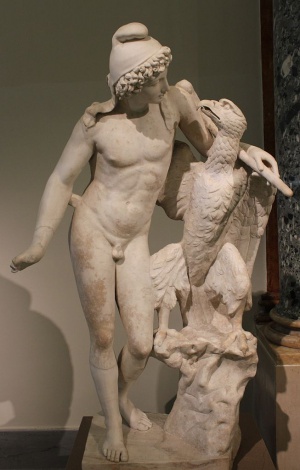(Boylove Documentary Sourcebook) - The Conventional Pederastic Ancient Greek Lyrical Motif of the Mythological Comparison of a Young Male Beloved to Deities or Heroes, as Featured in a Poem by Alcaeus

From The Boyish Muse (Ancient Greek: Μοῦσα Παιδική Mousa Paidike; Latin: Musa Puerilis [2nd Century AD]), compiled by Strato, in Book 12 of The Greek Anthology (Latin: Anthologia Graeca, 10th–14th Century), Volume 4, translated by W. R. Paton, Loeb Classical Library (London: William Heinemann; Cambridge, Massachusetts: Harvard University Press, 1918). Footnote omitted.
Note: The ancient Greek sanctuary of Olympia in Elis was located at the foot of the Kronion (Mount Kronos), mentioned below, meaning that this poem is a prayer for the victory of a young athlete competing in the Olympic Games. Adolescent boys had their own category of sporting events, with the minimum age for participation being estimated to have been twelve years.[1][2][3]
Zeus, Lord of Pisa, crown under the steep hill of Cronos Peithenor, the second son of Cypris. And, Lord, I pray thee become no eagle on high to seize him for thy cup-bearer in place of the fair Trojan boy. If ever I have brought thee a gift from the Muses that was dear to thee, grant that the god-like boy may be of one mind with me.

References
See also
- Puerilities: Erotic Epigrams of "The Greek Anthology" (book)
- Adult friend (dictionary)
- Age of attraction (dictionary)
- Athenian pederasty
- Boylove
- Cretan pederasty
- Ephebophilia
- Erastes
- Eromenos
- Greek love
- Historical boylove relationships in ancient Greece
- Loved boy (dictionary)
- Minor-attracted person (dictionary)
- Pederasty in ancient Greece
- Pedophilia
- Philosophy of ancient Greek pederasty
- Spartan pederasty
- Theban pederasty
- Young friend (dictionary)